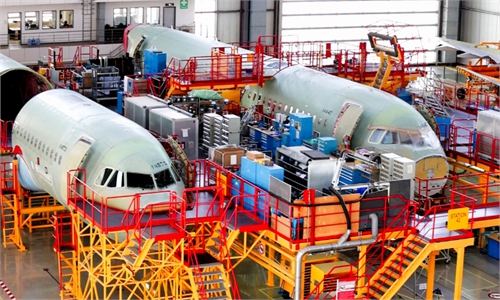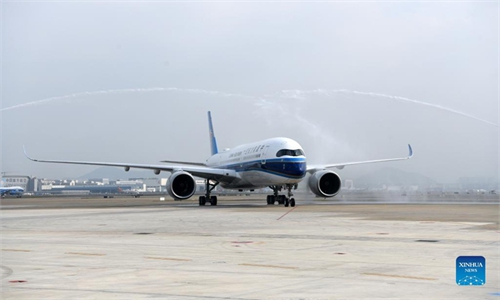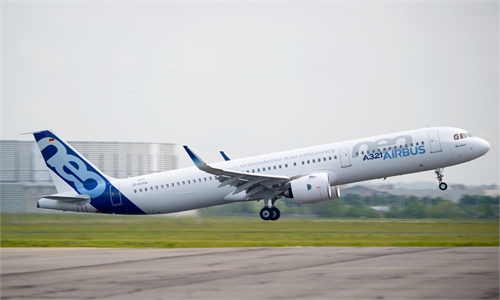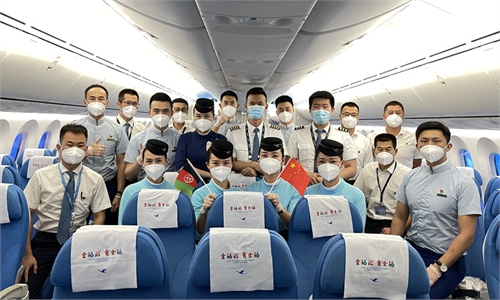Airbus to purchase aviation fuel for its delivery flight operations from Tianjin plant
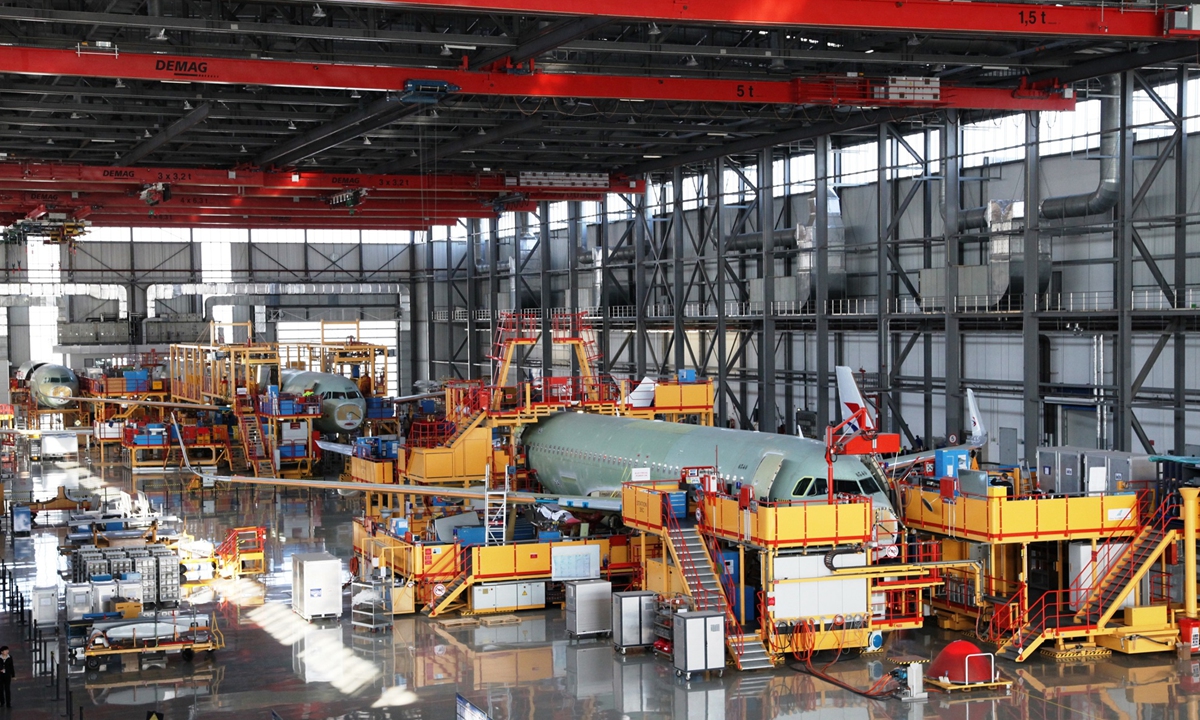
The A320 assembly line of Airbus in North China's Tianjin Municipality Photo: Courtesy of Airbus
Airbus has signed an agreement with China National Aviation Fuel Group to purchase Sustainable Aviation Fuel (SAF) for its delivery flight operations from Airbus Delivery Center in Tianjin.
The fuel, which will be provided by SINOPEC Zhenhai Refining & Chemical Co is made from used cooking oil.
Airbus said its Tianjin plant will commence flight operations using SAF before the end of the year. It will be the first time Airbus has completed customer deliveries using SAF from the Airbus Tianjin Delivery Centre.
SAF is a sustainably-produced aviation fuel made from feedstock ranging from used fat, oil and grease to municipal and forestry waste. Compared to fossil jet fuel, SAF has been shown to result in an up to 85 percent reduction in CO2 across the entire SAF lifecycle.
Increasing the use of SAF remains a key pathway to achieving the industry's ambition of net-zero carbon emissions by 2050. Key statistics outlined in the Waypoint 2050 report indicate that SAF could contribute between 53 percent and 71 percent of required carbon reductions.
All Airbus aircraft are currently certified to fly with an up to 50 percent blend of SAF mixed with kerosene. Airbus' first flight test using 100 percent SAF on one engine of an Airbus A350 was conducted in March 2021, followed by an A319neo single-aisle aircraft test in October 2021. In March 2022, Airbus successfully completed a third 100 percent SAF flight test using the A380. The aim of these flight test campaigns is to achieve certification of 100 percent SAF by the end of this decade.
The Global Times earlier reported that the Sinopec Zhenhai Refinery officially obtained a bio-jet fuel airworthiness certificate issued by the Civil Aviation Administration of China on September 19, 2022.
Global Times
